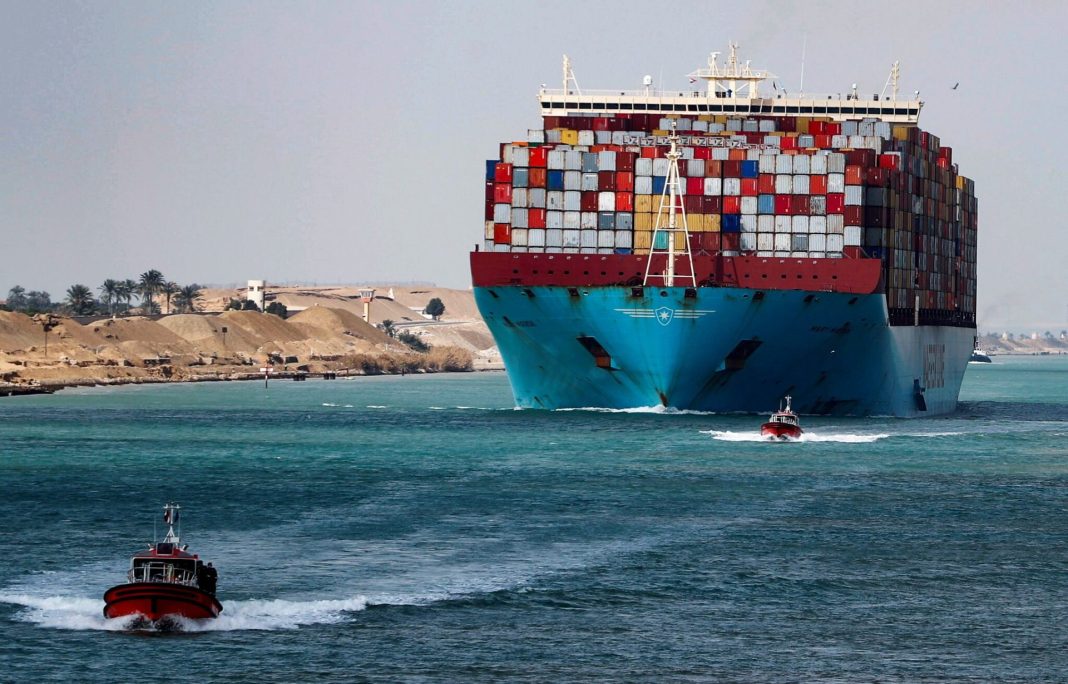The Shanghai Containerized Freight Index (SCFI), the most commonly used measure of such costs, reached $3,101 per 20-foot container from $2,871 last Friday. The data shows that the overall price of a container being shipped from Shanghai to Europe was reportedly 310% up from prices at the beginning of November.
The Houthis, who have pledged to support Gaza amid fighting in the enclave between Israel and the Palestinian group Hamas, have since mid-October launched multiple drones and missiles targeting commercial vessels in the Red Sea, as well as warships patrolling the vital channel. They have carried out more than two dozen attacks, forcing major freight giants like MSC, Maersk, CMA CGM and Hapag-Lloyd, to divert cargo around the southern tip of Africa, avoiding the Gulf of Aden and the Suez Canal.
This rerouting adds more than ten extra days to the journey and sends insurance bills surging. At the same time, the cost of staff wages has increased, while longer journeys also force the transportation companies to burn additional fuel.
Despite the major increases, shipping costs remain below levels recorded in March 2021 when the grounded 400-meter-long Ever Given container ship blocked the Suez Canal, leaving the crucial trade route impassable for six days. That incident left hundreds of ships stuck in mooring and reportedly held up $9 billion of global trade for each day of stoppage.
Earlier this week, the US and UK began carrying out airstrikes on Houthi militias in Yemen in response to the group’s actions in the Red Sea and the Gulf. The move has garnered mixed international reactions, with many warning that it would lead to escalation of conflict in the Middle East.
The New York Times newspaper has reported that even after two rounds of strikes by the US and UK, the Yemeni group retains about 75 percent of its ability to launch missiles and drones at ships crossing the Red Sea.
Citing two unnamed US officials, the daily added that “even after hitting more than 60 missile and drone targets with more than 150 precision-guided munitions, the strikes had damaged or destroyed only about 20 to 30 percent of the Houthis’ offensive capability, much of which is mounted on mobile platforms and can be readily moved or hidden”.
World trade plunged by 1.3% from November to December 2023 as a result of Houthi attacks on merchant vessels in the Red Sea, according to a new report by the IfW Kiel.
The German economic institute said on Thursday that the volume of containers transported via the Red Sea had plummeted by more than half as of December and is currently almost 70% below the volume that would usually be expected.
The research shows that currently around 200,000 containers are being transported via the Red Sea daily, down from some 500,000 per day in November.
“The detour of ships due to the attacks in the Red Sea around the Cape of Good Hope in Africa means that the time it takes to transport goods between Asian production centers and European consumers is significantly extended by up to 20 days,” said Julian Hinz, director of the IfW Kiel’s trade policy research center.
“This is also reflected in the declining trade figures for Germany and the EU, as transported goods are now still at sea and have not already been unloaded in the harbors as planned,” Hinz added.
The IfW Kiel’s trade indicator for December shows exports from and imports to the EU dropped by 2% and 3.1%, respectively. The US saw a 1.5% decline in exports and a 1% fall in imports, even though the route through the Red Sea and the Suez Canal plays a lesser role for the US than for Europe, according to the report.
